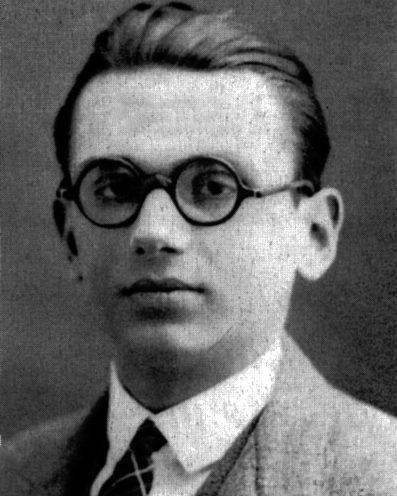Hey guys,
the recent steemSTEM meetup offered so many nice and enlightening conversations about different topics that I even got to discuss mathematics for a while (usually a total buzz-kill but not here ^^) with a few people such as @dber, @saunter, @bendelgreco and @ertwo. This is a post partially inspired by some of said discussions about truth, provability and how distincly academic mathematics can diverge from the one you remember from school.
Mathematics as a science
Being one discipline of 'natural philosophy' before it separated into distinct sciences, the origins of modern math mainly lie in ancient hellenistic period. Its etymology can be traced to the Greek μάθημα (mathema) meaning 'subject of instruction' or 'something that is learned' and not only characterizes some of the ambivalence inherent to it in academics but also emphasizes its meaning as something that should be studied.
In practical terms, mathematics serves a a tool for other disciplines: Whether you are trying to compute integrals, solve equations, detect patterns, make predictions, prove theorems etc. it provides the techniques necessary. This is commonly reflected by mathematics departments giving lectures for students of various other academic disciplines - and said students still complaining about math that they were trying to get away from.
But somewhat unbeknownst to many people, math also exist as a sovereign field of its own. As such it represents the metaphysical endeavour to infer and build up complex and self-consistent logical structures from a minimal set of rules, the so-called axioms. The grade of abstraction involved can get pretty high although I'd say that the majority of study is still done with some real-life connection in mind.
Think of it as a thought experiment or Socratic exercise not unlike in philosophy:
Suppose you agree on a given set of fundamental laws of logic, that you accept to be universally valid. Under these assumptions you ask yourself, which additional propositions and results you can logically infer by virtue of the axiomatic rules available.
This is also referred to as syntactic deduction and any statement that can be obtained this way is called provable.
Gödel's Incompleteness Theorems
In principle the axioms accepted as premise can be as outrageous as possible as long as the entire set is self-consistent. To produce meaningful results however one would have to (and in fact does) chose reasonable axioms reflecting our intuitive comprehension.
For instance the ability to count in so ingrained into humans that the existence of natural numbers is basically non-negotiable in a mathematical logic. Any axiom set falling short of producing natural numbers is so obscure that it is even mostly uninteresting to all but the dedicated logicians amongst mathematicians.
The largest common foundation of mathematics is currently the ZFC axiom system (Zermelo-Fraenkel + axiom of choice) which is serving us very well and is thus far not known to be inconsistent.

But then in 1931 German/Austrian mathematician Kurt Gödel managed to show two incredible theorems, which almost become more fundamentally confusing the longer you think about them. In essence he demonstrated, that mathematics can prove its own limitation - which is both astonishing as well as discouraging at the same time.
His first theorem states, that in any consistent formal system admitting a certain arithmetic of natural numbers, there are statements that are neither provable nor disprovable within the theory (one can not syntactically deduce the statement or its negation). In other words, there cannot be a formal system of logic with natural number arithmetic that is both consistent and complete in the sense that the provability of every statement is decidable. Note that we are not talking about truth but provability, those statements could be both true or false but within the formal system generated by the axiom set we cannot argue for one way or the other.
Interestingly the proof uses a modified version of the thousands of years old liar paradox by constructing a Gödel sentence G that states "G is not provable". If you weren't confused yet, the Gödel sentence G specifically can even be shown to be true in a weaker formal system, making it true but unprovable within the original system.
To make matters worse, the second theorem states that no formal system can prove its own consistence, meaning that we cannot even guarantee that a carefully chosen axiom set is globally self-consistent.
Theoretically speaking, ZFC, the current foundation of mathematics, could be wrong. This is why on a fundamental level a lot of work is invested into showing at least relative consitence of axioms in order to use ones that can be independently consistent even if one breaks down and has to be discarded.
Bu where does this leave us?
"Wait, doesn't this mean that the entire mathematics is utter nonsense?"
Well, not quite. Gödel only demonstrated that it would be foolish to expect formal logical systems to fulfill all of our wishes, but not that mathematics is inherently wrong. There is some paradoxical appeal in the observation that math is such a intricate theory that it can show its own incompleteness and there might be a philosophical metadimension to it that we still don't quite understand.
Most of all I feel this epitomizes that mathematics is a beautiful and challenging mindgame beyond computing numbers which indeed "has to be studied".
Image Source:
Unknown - Familienalbum der Familie Gödel, Scan from Gianbruno Guerrerio, Kurt Gödel - Logische Paradoxien und mathematische Wahrheit, S.24, Public Domain, Link

